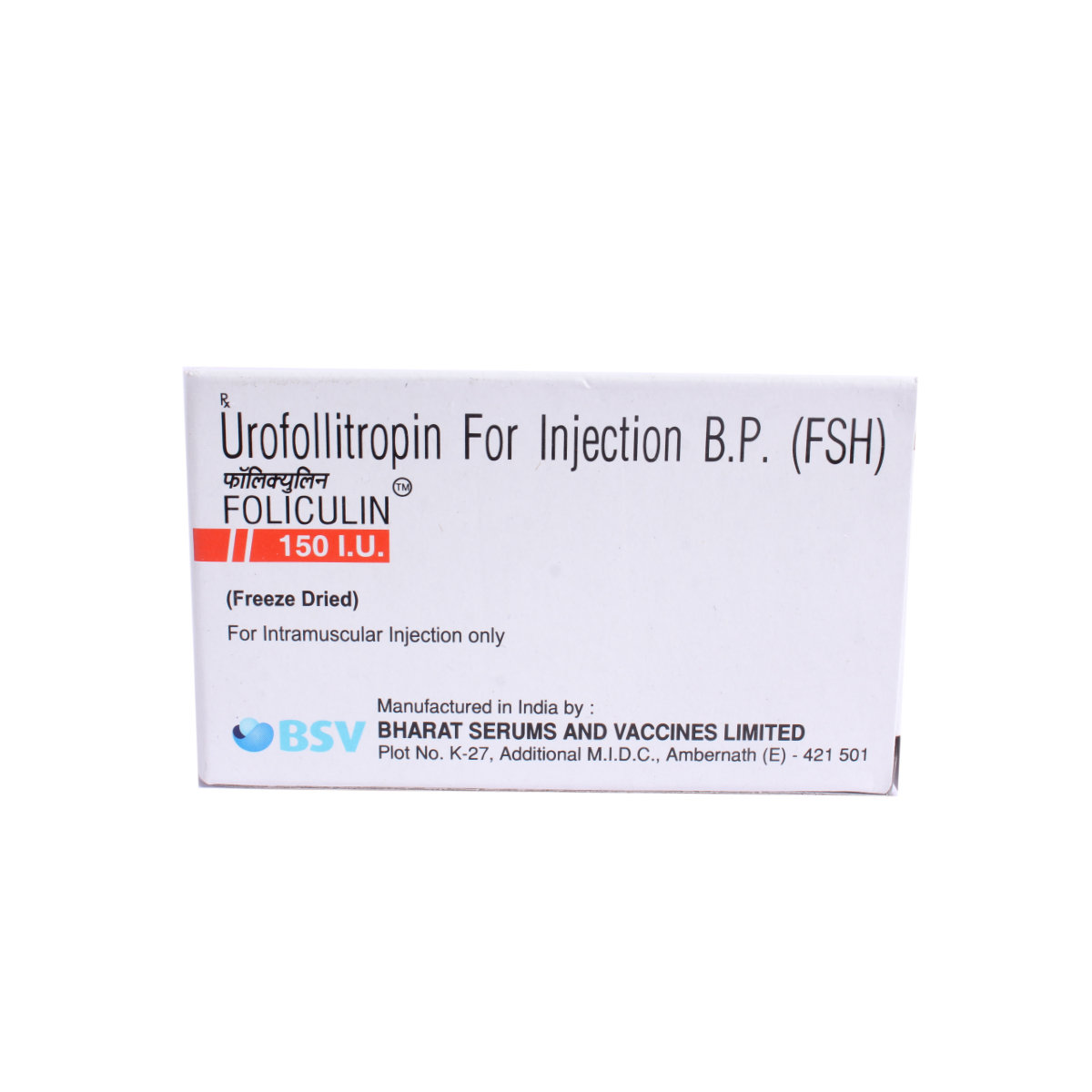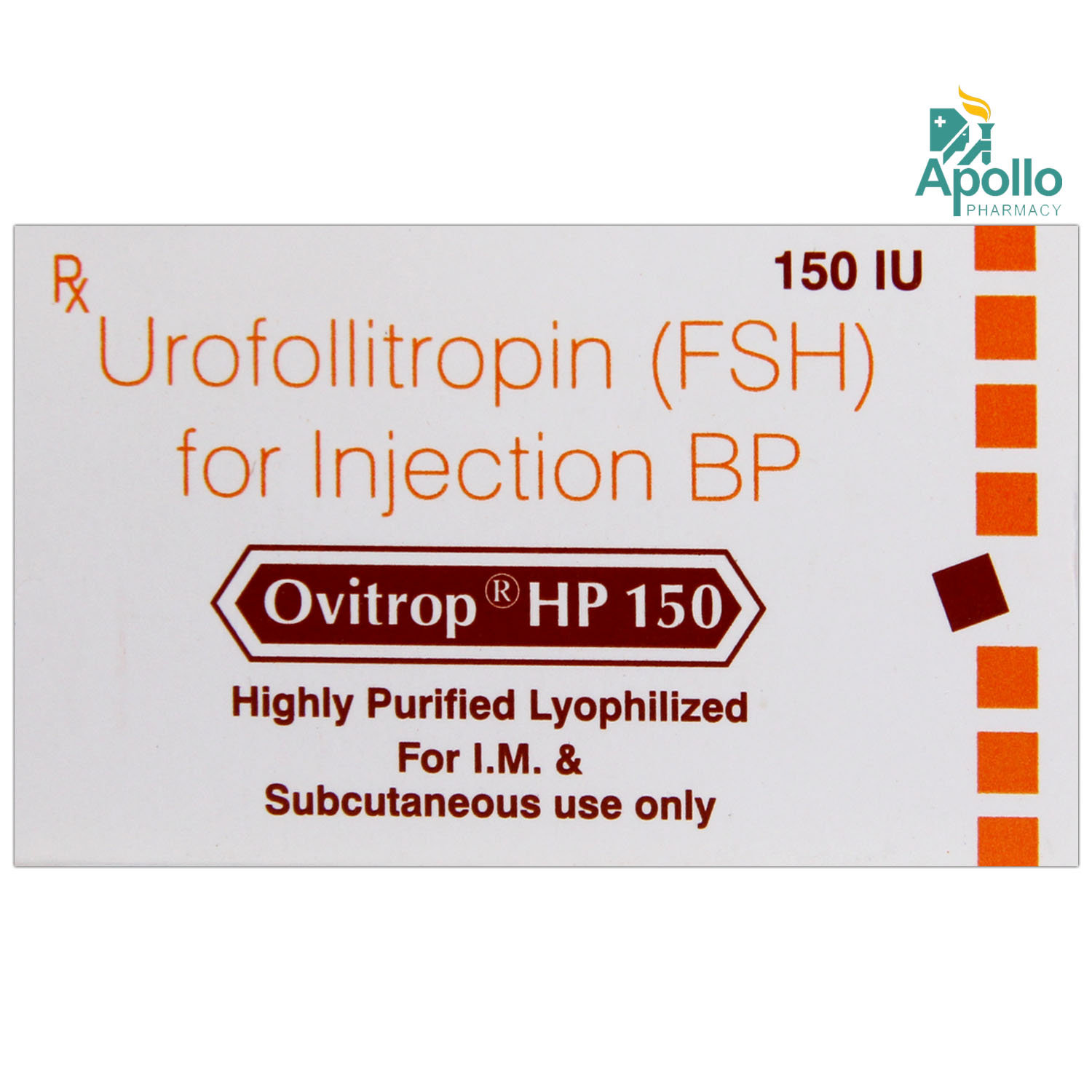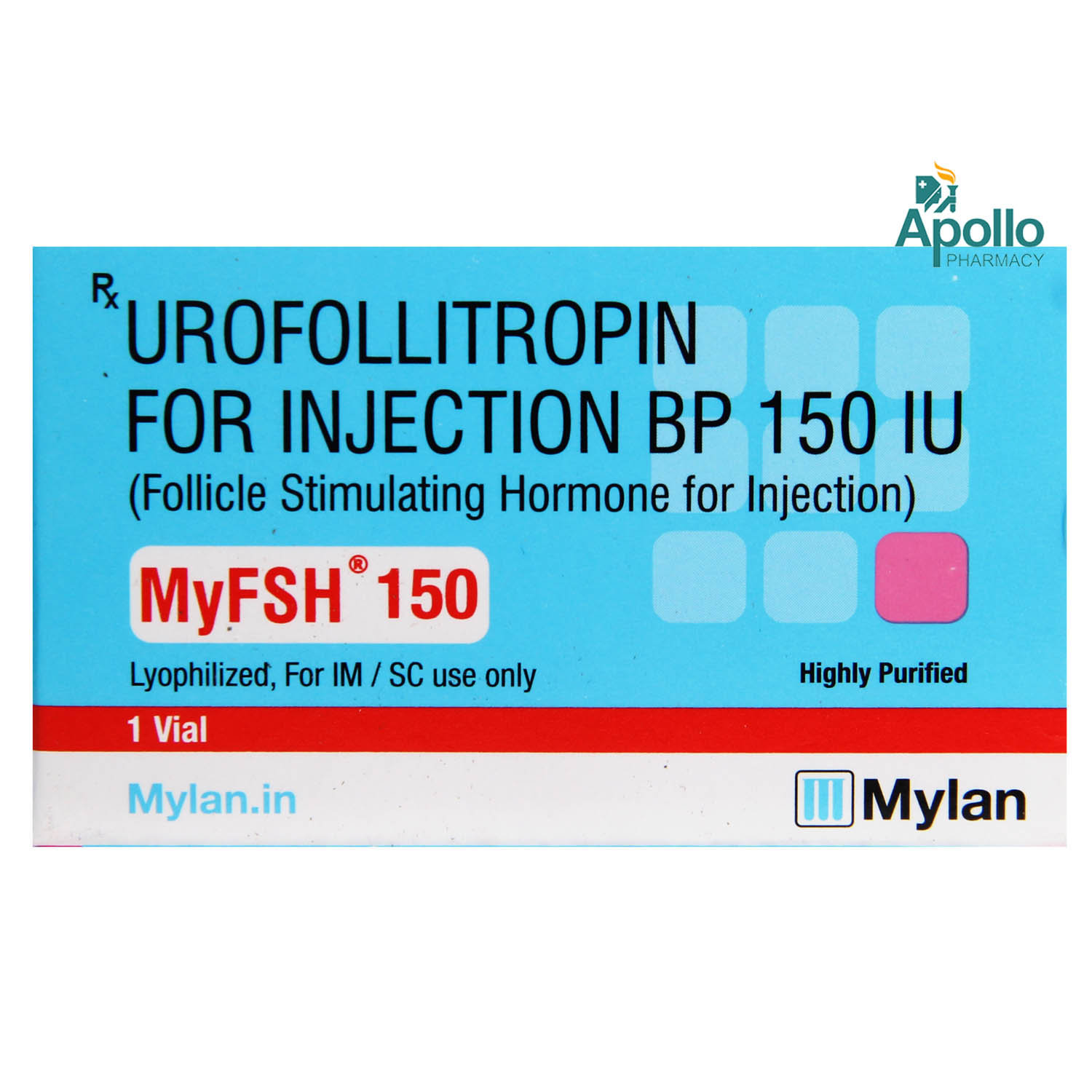Eema-Fsh 150 Injection

MRP ₹2538.5
(Inclusive of all Taxes)
₹380.8 Cashback (15%)
know your delivery time
Provide Delivery Location
Composition :
Manufacturer/Marketer :
Consume Type :
Expires on or after :
Return Policy :

Secure Payment

Trusted by 8 Crore Indians

Genuine Products
Therapeutic Class
Country of origin
Manufacturer/Marketer address
Author Details
We provide you with authentic, trustworthy and relevant information
Disclaimer
Alcohol
Safe if prescribed
Interaction of Eema-Fsh 150 Injection with alcohol is unknown. Please consult a doctor before consuming alcohol while using Eema-Fsh 150 Injection.
Pregnancy
Consult your doctor
Eema-Fsh 150 Injection is a category X pregnancy drug and is not recommended for use during pregnancy as it may cause multiple pregnancy (twins, triplets, etc.) and increase the risk of miscarriage, tubal pregnancy, birth defects or premature labour. However, please consult a doctor if you are pregnant.
Breast Feeding
Consult your doctor
Eema-Fsh 150 Injection is contraindicated in breastfeeding women. It is unknown whether Eema-Fsh 150 Injection is excreted in human milk. Therefore, please consult a doctor if you are breastfeeding.
Driving
Safe if prescribed
Eema-Fsh 150 Injection usually does not affect your ability to drive or operate machinery.
Liver
Consult your doctor
If you have any concerns regarding the use of Eema-Fsh 150 Injection in patients with Liver problems, please consult a doctor.
Kidney
Consult your doctor
If you have any concerns regarding the use of Eema-Fsh 150 Injection in patients with kidney problems, please consult a doctor.
Children
Safe if prescribed
Eema-Fsh 150 Injection is not recommended for children.
Product Substitutes
Keep Refrigerated. Do not freeze.Prepaid payment required.
About Eema-Fsh 150 Injection
Eema-Fsh 150 Injection belongs to the class of drugs called hormones used in the treatment of female infertility in women whose ovaries do not produce eggs and in women receiving treatments like IVF (in-vitro fertilization). Infertility is unable to become pregnant after trying for a year. Female infertility may be caused due to different factors affecting ovulation (release of an egg from the ovary), fertilization (fusion of sperm and egg) and implantation (fertilized egg attaches to uterus lining).
Eema-Fsh 150 Injection contains Urofollitropin which works similarly to follicle-stimulating hormone (natural sex hormone). Eema-Fsh 150 Injection increases oestrogen production that stimulates the development of the egg and mature follicle in women having ovulation (release of an egg from the ovary) problems and those undergoing IVF treatments.
Take Eema-Fsh 150 Injection as prescribed by your doctor. You are advised to take Eema-Fsh 150 Injection for as long as your doctor has prescribed it for you based on your medical condition. In some cases, you may experience headache, stomach pain, nausea, vomiting, pelvic pain, hot flushes (sudden feeling of warmth) or inflammation of the throat and nasal passage. Most of these side effects of Eema-Fsh 150 Injection do not require medical attention and gradually resolve over time. However, if the side effects persist or worsen, please consult your doctor.
If you are allergic to Eema-Fsh 150 Injection or any other medicines, please tell your doctor. Avoid taking Eema-Fsh 150 Injection if you are pregnant or breastfeeding and consult a doctor before taking Eema-Fsh 150 Injection. Avoid taking Eema-Fsh 150 Injection if you have tumours of the pituitary gland, hypothalamus, uterus, breasts or ovaries, vaginal bleeding, uterus fibroids, early menopause, malformations of sexual organs, cysts on ovaries or enlarged ovaries. If you experience weight gain, stomach pain, diarrhoea, nausea, vomiting, difficulty in breathing, decreased urination or swelling in the stomach after a few days of taking Eema-Fsh 150 Injection last dose, please consult a doctor immediately as these might be signs of high levels of activity in the ovaries.
Uses of Eema-Fsh 150 Injection
Medicinal Benefits Mweb
Key Benefits
Eema-Fsh 150 Injection contains Urofollitropin which works similarly to follicle-stimulating hormone (natural sex hormone). Eema-Fsh 150 Injection increases estrogen production that stimulates the development of the egg and mature follicle in women having ovulation (release of an egg from the ovary) problems and those undergoing IVF treatments.
Directions for Use
Side Effects of Eema-Fsh 150 Injection
- Headache
- Stomach pain
- Nausea
- Vomiting
- Pelvic pain
- Hot flushes (sudden feeling of warmth)
- Inflammation of throat and nasal passage
Drug Warnings
If you are allergic to Eema-Fsh 150 Injection or any other medicines, please tell your doctor. If you have hyperprolactinemia (high levels of prolactin hormone), tumours of the pituitary gland, hypothalamus, uterus, breasts or ovaries, underactive adrenal or thyroid glands, blood clots, vaginal bleeding, uterus fibroids, early menopause, malformations of sexual organs, cysts on ovaries or enlarged ovaries, inform your doctor before taking Eema-Fsh 150 Injection. Avoid taking Eema-Fsh 150 Injection if you are pregnant or breastfeeding and consult a doctor before taking Eema-Fsh 150 Injection. If you experience weight gain, stomach pain, diarrhoea, nausea, vomiting, difficulty in breathing, decreased urination or swelling in the stomach after few days of taking Eema-Fsh 150 Injection last dose, please consult a doctor immediately as these might be signs of high levels of activity in the ovaries.
Drug-Drug Interactions
Drug-Drug Interactions
Login/Sign Up
Drug-Food Interactions
Drug-Food Interactions
Login/Sign Up
Drug-Diseases Interactions
Drug-Diseases Interactions
Login/Sign Up
Drug-Drug Interactions Checker List
- CLOMIPHENE
- GANIRELIX
Habit Forming
Special Advise
Blood tests and ultrasound scans are recommended to monitor your response to Eema-Fsh 150 Injection treatment.
Diet & Lifestyle Advise
- Avoid fried and processed foods.
- Take high-fat dairy such as whole milk instead of low-fat products.
- Include fibre-rich foods like whole grains, fruits and vegetables in your diet.
- Avoid refined carbohydrates that are high in sugars.
- Replace animal proteins (like eggs, fish and meat) with vegetable protein sources (nuts, seeds and beans).
- Avoid drinking excess alcohol or caffeinated drinks as they can worsen the symptoms.
- Maintain a healthy weight, do moderate exercise regularly.
- Avoid smoking and alcohol intake.
All Substitutes & Brand Comparisons
RX
Out of StockNeogentin 150 Injection
Maneesh Pharmaceuticals Ltd
₹1130
(₹1017.0 per unit)
51% CHEAPERRX
Out of StockNeo Fsh 150IU Injection
Neon Laboratories Ltd
₹1420
(₹1278.0 per unit)
38% CHEAPERRX
Out of StockOvufol HP 150IU Injection 1's
Vhb Life Sciences Inc
₹1600
(₹1440.0 per unit)
30% CHEAPER

Have a query?







